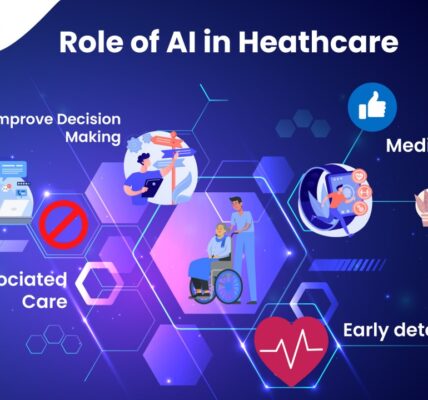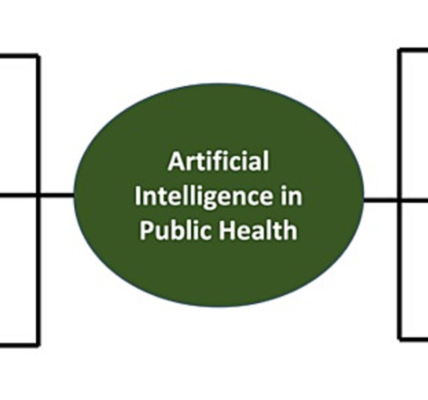Artificial Intelligence (AI) is increasingly transforming various sectors of healthcare, and its impact on emergency health services is particularly profound. Emergency health services are critical in providing timely and effective care during crises, and the integration of AI technologies is enhancing these services in numerous ways. From improving response times to optimizing resource allocation and assisting in diagnosis, AI is revolutionizing how emergency health services operate. This article explores the role of AI in emergency health services, highlighting its benefits, applications, and the challenges associated with its implementation.
Improving Response Times
One of the most significant benefits of AI in emergency health services is the improvement of response times. In emergency situations, every second counts, and swift action can make the difference between life and death. AI technologies are being used to enhance the efficiency and speed of emergency response systems. For instance, AI algorithms can analyze data from emergency calls and other sources to prioritize and dispatch emergency services more effectively.
AI-powered systems can assess the severity of an emergency based on the information provided in calls or messages and direct resources accordingly. These systems can also predict which type of emergency response—such as ambulance, fire, or police—will be required, based on historical data and real-time information. By optimizing the dispatch process and reducing response times, AI helps ensure that emergency services reach those in need as quickly as possible, ultimately improving patient outcomes and saving lives.
Optimizing Resource Allocation
Effective resource allocation is crucial in emergency health services, where resources such as ambulances, medical personnel, and hospital beds are often limited. AI technologies can analyze data to optimize the allocation of these resources based on current demand and predicted needs. For example, AI systems can track the availability and location of ambulances and direct them to areas with the highest need, ensuring that resources are utilized efficiently.
Additionally, AI can predict and manage peak times for emergency services by analyzing patterns and trends in emergency calls and hospital admissions. This predictive capability allows for better planning and preparedness, helping to prevent resource shortages during high-demand periods. By optimizing resource allocation, AI enhances the overall efficiency of emergency health services and ensures that resources are used where they are most needed.
Enhancing Diagnosis and Treatment
AI is also playing a crucial role in enhancing diagnosis and treatment in emergency health services. Rapid and accurate diagnosis is essential in emergencies, where timely intervention can significantly impact patient outcomes. AI-powered diagnostic tools can analyze medical images, lab results, and patient data to assist in making quick and accurate diagnoses.
For instance, AI algorithms can analyze imaging data, such as X-rays or CT scans, to identify critical conditions like strokes, fractures, or internal bleeding. These algorithms can provide real-time insights and highlight areas of concern, aiding healthcare professionals in making swift decisions. Additionally, AI can analyze patient data and medical histories to suggest appropriate treatment options and protocols. By supporting clinicians with advanced diagnostic tools and decision-making aids, AI improves the quality of care delivered in emergency situations.
Supporting Telemedicine and Remote Consultations
Telemedicine and remote consultations have become increasingly important in emergency health services, especially in areas with limited access to specialized care. AI technologies are enhancing these services by enabling remote diagnosis, monitoring, and consultation. For example, AI-powered platforms can facilitate virtual consultations between emergency responders and specialists, allowing for expert guidance and support in real-time.
AI systems can also analyze data from remote monitoring devices to provide insights into a patient’s condition and progress. This capability is particularly valuable in emergencies where immediate access to specialist care is not available. By supporting telemedicine and remote consultations, AI helps ensure that patients receive timely and appropriate care, even in remote or underserved areas.
Challenges and Ethical Considerations
While the benefits of AI in emergency health services are substantial, several challenges and ethical considerations need to be addressed. Data privacy and security are major concerns, as AI systems rely on sensitive patient information and real-time data. Ensuring that this data is protected and used in compliance with privacy regulations is crucial for maintaining trust in AI technologies.
Moreover, the integration of AI into emergency health services requires careful consideration of potential biases and limitations. AI algorithms trained on limited or non-representative data may produce inaccurate or unfair results. It is essential to ensure that AI systems are developed and validated with diverse datasets to minimize bias and ensure equitable outcomes.
Another challenge is the need for proper training and integration of AI technologies into existing emergency response workflows. Healthcare professionals and emergency responders must be trained to effectively use AI tools and interpret their results. Collaboration between AI developers and emergency service providers is necessary to ensure that AI systems are user-friendly, reliable, and aligned with clinical needs.
Future Directions and Innovations
The future of AI in emergency health services holds significant promise, with ongoing advancements likely to further enhance its impact. Innovations in AI technology, such as more sophisticated machine learning algorithms and improved data integration, will continue to refine the capabilities of AI systems in emergency response. Additionally, the integration of AI with other emerging technologies, such as drones and robotics, could lead to even more innovative solutions for emergency health services.
As AI continues to evolve, it will be essential to address the challenges and ethical considerations associated with its use. Ongoing research, regulation, and collaboration will be crucial in ensuring that AI technologies are developed and implemented in ways that prioritize patient safety and well-being.
Conclusion
AI is playing a transformative role in emergency health services by improving response times, optimizing resource allocation, enhancing diagnosis and treatment, and supporting telemedicine and remote consultations. While there are challenges and ethical considerations to address, the benefits of AI in emergency health services are substantial. By leveraging AI technologies and addressing potential limitations, the field of emergency health services can advance towards more effective, efficient, and responsive solutions, ultimately improving patient outcomes and enhancing the overall quality of care in critical situations.





